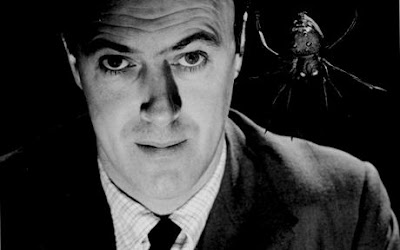"a person who narrates something, especially a character who recounts the events of a novel or narrative poem" (1)
The term 'Narrator' comes from the Latin word narr
 re meaning 'Knowing'(2). This seems to me to a be a highly reasonable explanation for what a narrator does, they know all (supposedly) and are willing to share their knowledge (normally).
re meaning 'Knowing'(2). This seems to me to a be a highly reasonable explanation for what a narrator does, they know all (supposedly) and are willing to share their knowledge (normally). There are different types of narrators (3), such as the:
- Unreliable narrator e.g. Patrick Bateman in American Psycho or Briony Tallis in Atonement. A narrator who delibratly or mistakenly retells the story in a distorted or untrue fashion, often with a selfish motive.
- The Secret Character e.g. Lemony in A series of Unfortunate Events. A narrator who only pretends to be detached from the story, who is later revealed as a character, and can often be used to great dramatic effect.
- The Detached Observer e.g. George Orwell's 1984. The narrator never inserts their own point of view or uses "I" or "Me".
- The Commentator e.g. A Christmas Carol by Charles Dickens. The narrator who never physically enters the story, but give insight and amusing commentary. This is the type of narrator I believe is in James and the Giant Peach. However the book differs from the adapted play, in that in the book it is revealed that James himself has written the book so James is actually the narrator to his own story. However, this device is not used within the play, and the part of narrator is a separate character. In our adaption we have split the part of narrator into three (as their was a huge amount of speech to learn and it makes the narrator a more interesting device).
As to specific techniques for a Narrator I have not been able to find much in the way of websites or books. However, I would assume the following were important:
- Clear diction - The narrator is the thread throughout the play and if the audience cant understand what you are saying they may miss important bits of information. Also, we are performing for school children its important we encourage clear speaking for learning.
- Energy - We are performing for children, kids like energy and not childish behaviour.
- Ability to interact with children in a enthusiastic manner
- Ability to recognize the children's conceptual age - what can the children easily understand




